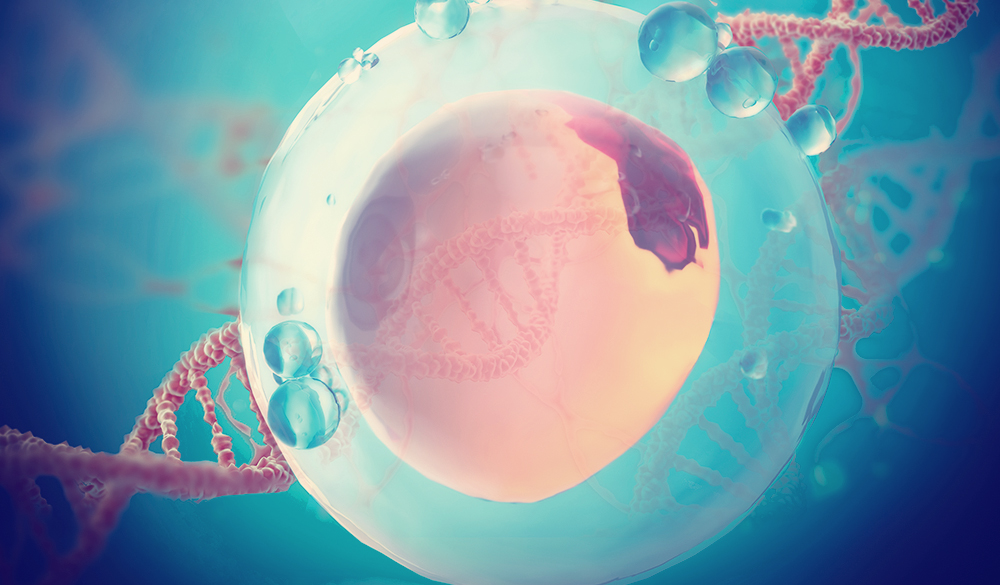Pregnancy complications, infertility issues and the use of assisted reproductive technology is increasing in Australia and therefore there are many who need assistance.
When supporting fertility management, from a functional and naturopathic perspective, there are a number of factors that are typically taken into consideration to optimise fertility and birth outcomes. This is for both males and females.
This can include balancing hormones and menstrual cycle, supporting egg and sperm quality, optimising foetal development and brain health, identifying and supporting the prevention of potential risk factors such as hypertension, folate deficiencies, heavy metal toxicity and gestational diabetes.
Growing technology and accessibility in the field of genetic testing has also provided an avenue to support fertility patients. Whilst there are gene tests than can ascertain risk factors for specific disease states, one of the most interesting areas in gene testing is the world of nutrigenomics and nutrigenetics. Nutrigenomics being a broad term used to describe how nutrients impact on gene expression. Nutrigenetics defined as the interaction between genetic variations and nutritional intake, and then how this may affect health.
A quick reminder about genes. Genes provide instructions (encode) for specific proteins which build, regulate and maintain health and include enzymes, transporters and receptors. When there is a variation to a gene, it may alter protein and cell function. Nutrients and the environment may also influence gene expression. A gene variation together with poor nutrient and environmental factors may therefore have an impact on fertility, foetal growth and birth outcomes.
Nutrigenomic testing provides the opportunity to identify genetic variations that may influence protein function and may be supported or modified with nutrients, diet and various other environmental changes.
Whilst there are different types of genetic variations, nutrigenomic testing predominantly looks at single nucleotide polymorphisms (SNPs) and sometimes insertions and deletions. It is important to remember that having gene variants are not a diagnosis, and nutrigenomic testing should always be considered in the context of that patient’s case including pathology tests, presenting symptoms and case history. Current nutrigenomics tests available identify gene variants but are not a test of the expression of that variation. The technology to test for expression of genes is currently underway and research in that area is growing, however it is in its infancy, and is not commercially available on a large scale at this point in time. Nutrigenomic testing, however, is very useful to use in practice as it helps to gain insight into what fertility and pregnancy challenges may be present, and can help steer what further pathology and functional testing may be required for optimal support and outcomes.
Which gene variations should be considered in fertility management?
There are a number of gene variations to examine and it’s important not to limit these to just those associated directly with fertility. As indicated above, the whole person should be considered, from hormonal balance, stress and mood, nutritional requirements of the growing foetus, optimal gut microbiome and function, to blood pressure and exposure to environmental toxins.The following outlines an example of a number of SNPs you may wish to consider when supporting fertility patients.
MTHFR SNP and methylation – why so important in fertility?
The methylene-tetrahydrofolate reductase (MTHFR) gene is one of a number of SNPs in the methylation cycle; an important process that controls gene expression. Poor methylation can cause DNA damage which effects fertility by impacting gene cells and subsequent pregnancy loss or developmental defects.
DNA methylation can be impacted by environmental factors and is a highly dynamic process during early embryogenesis.
There are genetic and nutritional influences on methylation. This includes the impact of genes such as MTHFR. An MTHFR SNP can effect the function of the MTHFR enzyme, with up to 70% loss of function depending on which MTHFR SNP is compromised, and if it is from both or one parent.[12] The MTHFR gene, which impacts folate metabolism has been associated with recurrent miscarriage and pregnancy complications.[3,4,13] Others SNPs in the methylation cycle such as MTHFD1 have also been associated with adverse pregnancy outcomes.[1] Methylation depends on adequate levels of folate and B vitamins. There are many relevant studies that link homocysteine, folate, B vitamins and methylation with fertility and pregnancy outcomes.[1-4,9,10]
Therefore it’s important that both potential parents have optimal, balanced methylation at preconception due to potential impact on DNA replication and expression of genes and pregnancy outcomes.
The genes touched on in this article are only a handful of many genes that can be reviewed as part of fertility management and preconception care. It’s helpful to consider all the elements of pregnancy care and associated genes, and not just limit to those genes directly associated with fertility.
Importantly, genetic testing is a tool that can be utilised as part of your overall support for patients, and may assist in providing better health outcomes for your patients and babies.
| Support focus area | Examples of associated gene variants |
| Folate metabolism Adequate folate levels are important due to the association with neural tube defects, high homocysteine, early pregnancy loss and altered DNA methylation.[1-4] It is also important for oocyte quality and maturation. |
MTHFR MTHFD1 SHMT These genes are involved with folate metabolism. |
| Vitamin D Vitamin D deficiency has been suggested as a risk factor for pre-eclampsia.[5,6] It is important for the regulation of the transcription and function of genes associated with normal implantation, angiogenesis and placental invasion. It may play a role in the production and transport of sperm. |
VDR Vitamin D receptor gene involved in the regulation of vitamin D responsive genes. |
| Vitamin A Vitamin A is important for cell growth and differentiation in organogenesis and embryonic development. It is important for cilia in the fallopian tubes and testes for sperm production. Vitamin A deficiency is associated with infertility and miscarriage.[7,8] |
BCOM1 Involved in the metabolism of betacarotene into vitamin A. |
| Vitamin B12 Vitamin B12 is important for cell replication and DNA/RNA synthesis. Low vitamin B12 is associated with poor pregnancy outcomes such as an increased risk of offspring with spina bifida, and maternal obesity.[9,10] |
TCN2 Involved with the transport of vitamin B12 into the cells. FUT2 Involved with the absorption of vitamin B12 in the gut MTR MTRR Both these genes are part of the methylation cycle and involved with vitamin B12 recycling. They are important in the production and recycling of methionine and homocysteine. |
| Oxidative stress CoQ10 is important for healthy oocytes and reduction of oxidative stress. Glutathione is an important antioxidant. |
NQ01 Involved with CoQ10 metabolism. GPX1 Involved in glutathione peroxidase. |
| Omega-3 fatty acids Support sperm motility and improve uterine artery blood flow. |
FADS Involved with regulating unsaturation of fatty acids. |
| Choline Choline protects against pre-eclampsia and is important for retinal health in offspring. |
PEMT Associated with phosphatidyl choline production. |
| Gut microbiome Probiotics during pregnancy, such as Bifidobacterium lactis, are associated with the prevention of eczema in babies and young children.[11] |
FUT2 Associated with poor diversity of gut microbiome, especially Bifidobacterium spp. and vitamin B12 absorption. |
| Oestrogen levels Important to balance oestrogen for an optimal menstrual cycle that supports conception. |
COMT CYP1B1 Both these genes are associated with oestrogen metabolism. |
| Thyroid function Imbalanced thyroid levels can effect ovulation. |
FOXE1 Associated with hypothyroid conditions. |
References
- Carroll N, Pangilinan F, Molloy AM, et al. Analysis of the MTHFD1 promoter and risk of neural tube defects. Hum Genet 2009;125(3):247-256. [Full Text]
- Frosst P, Blom HJ, Milos R, et al. A candidate genetic risk factor for vascular disease: a common mutation in methylenetetrahydrofolate reductase. Nat Genet. 1995;10(1):111-113. [Abstract]
- Nazki FH, Sameer AS, Ganaie BA. Folate: metabolism, genes, polymorphisms and the associated diseases. Gene 2014;533(1):11-20. [Abstract]
- Friso S, Choi SW, Girelli D, et al. A common mutation in the 5,10-methylenetetrahydrofolate reductase gene affects genomic DNA methylation through an interaction with folate status. Proc Natl Acad Sci USA 2002;99(8):5606-5611. [Full Text]
- Zhao X, Fang R, Yu R, et al. Maternal vitamin D status in the late second trimester and the risk of severe preeclampsia in southeastern China. Nutrients 2017;9(2):138. [Full Text]
- Mirzakhani H, Carey VJ, Zeiger RS, et al. Association of maternal asthma and vitamin D status in early pregnancy with risk of preeclampsia: an observation from The vitamin D Antenatal Asthma Reduction Trial (VDAART). Am J Resp Crit Care Med 2016;193:A1754. [Abstract]
- Simşek M, Naziroğlu M, Simşek H, et al. Blood plasma levels of lipoperoxides, glutathione peroxidase, beta carotene, vitamin A and E in women with habitual abortion. Cell Biochem Funct. 1998;16(4):227-231.
[Abstract]
- Ghyasvand T, Goodarzi MT, Amiri I, et al. Serum levels of lycopene, beta-carotene, and retinol and their correlation with sperm DNA damage in normospermic and infertile men. Int J Reprod Biomed (Yazd) 2015;13(12): 787–792. [Abstract]
- Groenen PM, van Rooij IA, Peer PG, et al. Marginal maternal vitamin B12 status increases the risk of offspring with spina bifida. Am J Obstet Gynecol 2004;191(1):11-17. [Abstract]
- Knight B, Shields B, Brook A, et al. Maternal adiposity is associated with lower maternal vitamin B12 and folate in pregnancy: EP13.18. Int J Obst Gynaecol 2015;122:259-260. [Abstract]
- Doege K, Grajecki D, Zyriax BC, et al. Impact of maternal supplementation with probiotics during pregnancy on atopic eczema in childhood--a meta-analysis. Br J Nutr 2012;107(1):1-6. [Full Text]
- What is MTHFR? MTHFR support Australia. Viewed 22 May 2017, [Source]
- Enciso M, Sarasa J, Xanthopoulou L, et al. Polymorphisms in the MTHFR gene influence embryo viability and the incidence of aneuploidy. Hum Genet 2016;135(5):555-568. [Abstract]
DISCLAIMER:
The information provided on FX Medicine is for educational and informational purposes only. The information provided on this site is not, nor is it intended to be, a substitute for professional advice or care. Please seek the advice of a qualified health care professional in the event something you have read here raises questions or concerns regarding your health.



